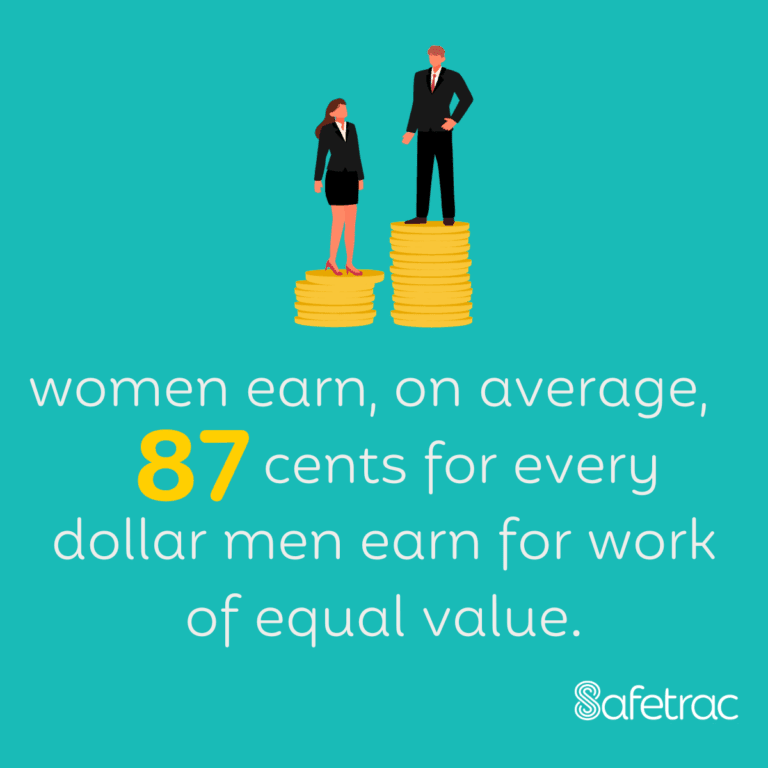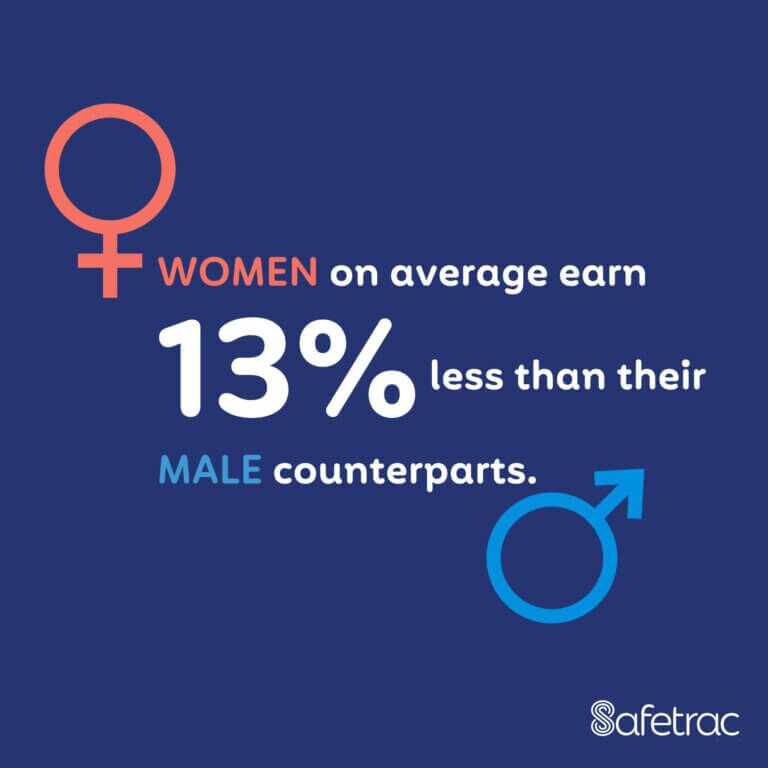International Equal Pay Day: A call to empower men, women, families, and businesses
- Updated
- 6 min
As we approach International Equal Pay Day on September 18, it’s imperative to reflect on the significance of this day for everyone involved – men, women, families, and businesses alike. In a world where the concept of gender equality in the workplace is an ongoing struggle, we must recognise the critical role that equal pay plays in fostering a more inclusive and equitable society.
While I may be the CEO of Safetrac, I’m not just a business leader, but also a single mother to two (mostly) wonderful children.
My journey in carving out a life that allows me to balance my career and family responsibilities has given me a unique perspective on the importance of equal pay and workplace flexibility. It’s a perspective that I’m eager to share.
Empowering families through equal pay
The family unit is undergoing a transformation, and it is high time that our workplaces evolve to support this change. Both men and women should be granted the flexibility they need to meet the demands of their families without undue stress. Why? Because when families are empowered, society benefits.
For families, equal pay means more than just financial security. It means that both partners can pursue their careers, contribute to their households, and provide a better future for their children. It means that fathers can be as engaged in parenting as mothers, fostering stronger bonds within families.
At Safetrac, I’ve strived to create a workplace where all staff, whether they are parents or not, have the flexibility to handle the inevitable juggling act that comes with life. I’ve seen firsthand how this commitment to work-life balance has not only made our team members happier but has also translated into better job performance.
The current state of play
As of February 2023, the Australian Bureau of Statistics (ABS), reveals that Australian women earn, on average, 87 cents for every $1 earnt by a man. Pleasingly, we have returned to the lowest gap on record, and return to where we were once three years ago (when the gender pay gap was at 13.4%). However, there is still a long way to go.

As of November 2022, women’s average weekly ordinary full-time earnings across all industries and occupations are $1,653.60. Australian men’s average weekly ordinary full-time earnings are $1,907.10. That’s $253.50 women earn less than men each week. It is worth noting, that this gap is only for full-time workers, but this means over the course of a year, a woman is $13,182 worse off than a male doing the same job.
In today’s current world of inflation that is a large chunk that will help pay bills, pay loans, and contribute to superannuation.

This means in effect that workplaces are valuing men’s contribution to the workforce more than women’s. This is no longer acceptable in workplaces where women and men can and should hold equal roles.
The reality is workplaces that continue to refuse to prioritise equality will fail to attract and retain female talent.
This will be very damaging in the long term to a company’s productivity, innovation and profitability – which have been proven to improve with a diversified workforce.
The legislative landscape
Australia has taken significant steps in promoting gender equality. Under the Workplace Gender Equality Act 2012, Australian private sector employers with 100 or more employees are mandated to report annually on six Gender Equality Indicators to the Workplace Gender Equality Agency (WGEA).
These indicators range from the gender composition of the workforce to issues concerning gender equality consultation in the workplace.
Companies with over 500 employees must also meet minimum standards, like having policies or strategies to bolster gender equality.
Furthermore, transparency is pivotal in achieving gender pay parity. The Fair Work Act gives employees rights related to sharing or not sharing information about their pay and working conditions. Discrimination on various grounds, including gender, is unlawful, safeguarding employees from unjust workplace practices.
Another vital aspect is the Equal remuneration orders under the Fair Work Act, ensuring employees receive equal pay for work of equal or comparable value.
These legal frameworks reflect a concerted effort towards establishing gender equality in the workplace. However, while laws lay the groundwork, it’s up to businesses to bring these laws into policy. Organisations need training programs and processes to bring them to life.
I’m very proud that Safetrac is at the forefront of helping so many businesses across Australia train all levels of staff and management in all types of issues around discrimination, equality, diversity and inclusion.
The business case for equal pay
Now, let’s shift our focus to businesses. It’s essential for companies to understand that equal pay is not just a moral or legal obligation; it’s a smart business move. Here’s why:
- Attracting top talent: Companies that prioritise equal pay and work-life balance are more attractive to top talent. In a competitive job market, this can make a significant difference in attracting and retaining skilled employees.
- Enhancing employee engagement: Employees who feel valued and supported are more engaged and motivated to excel in their roles. This leads to increased productivity and a positive work environment.
- Fostering innovation: Diverse and inclusive workplaces encourage innovation and creativity. Different perspectives and backgrounds contribute to unique problem-solving approaches, which can be a competitive advantage.
- Improving reputation: Businesses that champion gender equality and equal pay build a positive reputation in the eyes of consumers and investors. This can lead to increased customer loyalty and investment opportunities.
- Compliance and risk mitigation: Ensuring equal pay compliance helps companies avoid legal issues and reputational damage. Staying on the right side of the law is not just ethical but also financially prudent.
As someone who finds fulfilment in knowing that my team at Safetrac is happy and fulfilled in their careers, I can attest that a workplace committed to equality and work-life balance can achieve remarkable results.
International Equal Pay Day serves as a crucial reminder that gender equality in the workplace is a shared responsibility. It’s a day to acknowledge the progress we’ve made and the work that still lies ahead. By empowering men, women, and families through equal pay and workplace flexibility, we can create a brighter, more equitable future for all.
I encourage businesses to recognise the rewards that come with championing equal pay and flexible work arrangements. It’s not just a moral imperative; it’s a strategic advantage that can lead to happier employees, better business outcomes, and a fairer world for all.
Let’s take this International Equal Pay Day as an opportunity to reflect, educate, and commit to building workplaces that empower everyone, regardless of gender, to thrive in their careers and personal lives. It’s a journey worth embarking upon, and the rewards for businesses and society at large are immeasurable.
Get the latest news
Stay updated with the latest news and expert insights on compliance, legislation, and industry trends.
